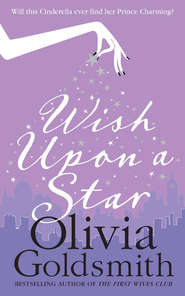По всем вопросам обращайтесь на: info@litportal.ru
(©) 2003-2025.
✖
Bestseller
Автор
Год написания книги
2019
Настройки чтения
Размер шрифта
Высота строк
Поля
Lincoln’s Doctor’s Dog (#ulink_8a5876b1-cdfc-5106-b250-7fcdc6d09a7c)
As difficult as it is for a writer to find a publisher—admittedly a daunting task—it is twice as difficult for a publisher to sort through the chaff, select the wheat, and profitably publish a worthy list.
—Gerald Ochs Davis, Sr.
Fifty Years in Publishing
16 (#ulink_35bc368f-256c-5610-a7fb-ed37e4ca4e52)
The only good author is a dead author.
—Patrick O’Connor
“He’s dead?” Pam Mantiss nearly yelled into the phone. “What do you mean, he’s dead?”
“I think the traditional definition is meant here,” Jim Meyer told her dryly. “Heart stoppage, lack of respiration, no measurable brain activity.” Spoken as a true lawyer, Pam thought.
“How can he be dead? He owes us a manuscript in less than three months.” Pam put her hand to her forehead. Peet Trawley dead. It was unimaginable. She’d been working with him for close to twenty years, and he’d been sick every day for all that time—or imagining he was. She’d just seen him. He’d looked awful, and said he couldn’t get out of his chair, but he always looked awful, and Pam had long suspected that he used the wheelchair more as a prop than a necessity. It was protection for him, a kind of exoskeleton. And he needed the protection, what with a voracious ex-wife constantly after him for money, a voracious current wife always after him for money, and a less-than-winsome collection of children and stepchildren from both marriages, all voracious and always after him for money.
“Jesus Christ, Jim. He was the only sure thing I had for the fall list.”
“Uh-huh. That and Lincoln’s Doctor’s Dog.”
“Yeah, right.” It was an old publishing joke: that books about Lincoln sold; that books about dogs sold; and that books about doctors sold. Therefore, a guaranteed bestseller would be Lincoln’s Doctor’s Dog. The joke, of course, was such a title that would clearly go nowhere. Well, there might be no sure things, Pam thought, but with Peet’s track record and a movie coming out, his books were as close as it comes.
“How do you know he’s dead?” she demanded. Publishing was rife with gossip. Maybe this was just bullshit. Jim Meyer was only corporate counsel, a lawyer, not a book person.
“His attorney, the one handling probate, called. Peet died on Wednesday.”
“Probate already? My God, that was fast!” Well, knowing Edina, his wife, and the rest of Peet’s family, they’d be squabbling over the will before Peet was cold.
“Too bad about your sure thing,” Jim said, nastily.
Pam clutched at the receiver. God! Just because she didn’t want to sleep with him again, he took it personally. As if Pam didn’t know that there was no sure thing. And even though it sometimes drove her crazy, it gave her daily work the edginess she seemed to crave. Actually, when she thought about it, cravings were the major portion of her life: She’d craved booze in the seventies, then switched to sex and coke in the eighties, and had moved on to food in the nineties—until her weight gain and depression drove her to Prozac. No doubt about it, she thought ruefully, she was definitely a woman of her times.
She was also editor in chief at one of the most successful, yet still prestigious, publishing firms in New York—the world’s capital for publishers. And being the only woman who had achieved that position at Davis & Dash, she, better than anyone, knew there were no sure things in publishing. Too bad she needed one so badly now.
She went to the small refrigerator concealed in a cabinet. In it were bottles and bottles of Snapple, carefully lined up in rows. Another obsession. No one was allowed to touch her precious Snapple, though occasionally she offered some to a visiting author. She counted the bottles now and took out a raspberry iced tea, popping the top and downing a swig, though it was early. Here’s to you, Peet, she thought. And here’s to me, too.
Pam had gotten where she was because of her enormous ability, her former willingness to work long hours, her scary, edgy talent at picking winners, and the ballsiness she had in backing up her selections. It also didn’t hurt that she had what she thought of as a nice pair of tits, not to mention long legs. Those she had been willing to open for Gerald Ochs Davis when he had fallen between marriages—in the crack, as it were. Pam smiled at the vulgarity. She liked to be vulgar. And sexy. And edgy. But lately motherhood, Prozac, and Old Father Time were wearing off the edge. This news about Trawley might have, in the old days, given her a thrill of terror, an adrenaline high that would make the next steps fun. No more. She was tired. Holy shit, wasn’t there one goddamn thing she could count on?
Well, she could count on the editorial meeting that she was already ten minutes late for to be both overlong and unproductive. She’d have to listen to all the little editor girls complain about the Chad Weston book and hear Lou Crinelli, one of her younger, more macho editors—and already bucking for her job—give a forty-minute summary of a manuscript that she could read in half the time. Pam sighed. By now all of the editors were sitting around the table waiting for her.
“Listen, I have to go over a contract,” Jim said. “I just wanted you to know. Will you tell Gerald, or should I?”
Like he was the only one busy. Pam rolled her eyes. This was not good news to give GOD, especially along with the other news that his book’s opening sucked. “I’ll tell him,” she said. Christ. She wasn’t going to look forward to that.
Pam hung up her phone and moved to the window. Feets, get walking, she told herself, but she didn’t move. She sipped the Snapple moodily. If they started the editorial meeting without her, they’d only have to begin again, because she made the decisions. It was raining: a gray, thin drizzle that made all of Manhattan look like a bad French film. Pam bit her lower lip. What would she do without the Trawley book? How could she replace it? What else could generate that wave of revenue?
She thought, bitter for a moment, about all the money she had made for Peet. Twenty-four books in sixteen languages that had sold over fifty million copies. There was still the backlist, but if she lost new revenues, she lost part of her power base. Pam felt the cold window with the tips of her fingers and shivered.
Good old Peet! Despite his hypochondria and constant complaining, he had pumped a book out every nine months, and he had a million fans who would buy it in hardcover and three times that number who would buy it in paperback. And Peet had been Pam’s own discovery. In fact, it was because of Peet that Pam was where she was today.
Back in the Jurassic age, when Pam herself was a little editor girl, she used to take home manuscripts from the slush pile—publishing’s name for the unsolicited books that came in over the transom. Nowadays, no one even bothered to read them. Even back then they were rarely worth the bother. But two decades ago Pam had believed—or at least hoped—that she could pluck the new Fitzgerald, or maybe the new Grace Paley, out of the endless pile of unknowns. After reading dozens, and then scores, and finally hundreds of pathetic, poorly plotted, badly typed, ineptly written submissions, Pam had realized it was an impossibility. It was like panning for gold in the sewer: all you wound up with was crap.
Until, just as she was about to give up, she hit upon Peet’s Gothic tale. Set in a wind-battered New England coastal town, it was the story of a monstrous child, hidden from the town, growing up scorned and resented. It was unbelievably badly written—Peet believed strongly in the use of adverbs—but its energy was undeniable. Pam knew the book would need an incredible amount of work before it was close to publishable, but she was willing to do it. There was something primal about the book, and the resentments of the monster—which mirrored Peet’s own—were deeply felt. After she’d cleaned the manuscript up and made it more presentable, she’d shown it to her boss and begged him to support her in the editorial conference. He’d refused, and—in desperation—she’d gone over his head. She’d lost, and it broke her heart when they rejected Peet.
Then she had the task of calling him, after she had prematurely written to him with good news. He had said it was the omega—the end of his attempts to be published. After all the rejections he’d received and the false hope that Pam had given him, he was giving up. It was only then that she found out that Peet was crippled. He’d been injured in a motorcycle accident and couldn’t get out of his wheelchair. Today that kind of information would roll off Pam’s battle-scarred back, but then it inspired her for one more effort. She succeeded, to a point. Hardcover wouldn’t touch it, but she’d gotten the paperback division to put it out as a paperback original. Jubilant, Peet had insisted they put an omega on the cover art. It had become his symbol. Not an end, but a beginning.
But it was the end for Pam. When her boss found out, he fired her. However, a few months later the book went on to sell three and a half million copies in paper. There were a lot of teenagers out there who identified with the resentful, monstrous child. Peet became the nine-hundred-pound gorilla, and bless his heart, he wouldn’t do another book without an omega somewhere on the cover, or without Pam as his editor.
Of course Pam was not only rehired, but treated with kid gloves. Peet’s next book, once again totally rewritten by Pam, sold half a million hardcover copies and over four million in paper. Two more titles, plus a few other less enormous successes, and Pam got her own imprint, a big raise, and—eventually—her boss’s job. She also attracted, for the first time, the attention of Gerald Ochs Davis.
Although public opinion sometimes held otherwise, Pam Mantiss knew that she didn’t have her job because of her on-again, off-again sexual liaison with Gerald. She kept her job because she was tough and smart and because she delivered. She avoided the Lincoln’s Doctor’s Dog books and sought titles that moved off the shelf. She had a lot more hits than misses. After all, there were a lot of little editor girls who had slept with Gerald Ochs Davis. But there were very few little editor girls who wound up as editor in chief of a publishing house. Only Pam and a very few others had managed that.
But times were changing. The book business was tougher than ever. Pam remembered the good old days—only a decade ago—when sales of eighty thousand made a book a bestseller. Now it took three or four hundred thousand. The book market was bigger than ever, but the majority of book buyers were looking for only a few kinds of books. To make things worse, there were barbarians at the gate. The conglomerate that owned Davis & Dash looked at it as only another profit center. There had to be profits, and they had to get bigger every year. The pressure made her head hurt. Pam had a nine-year-old son to support. After she dumped Julio, her ex-husband, he’d headed down to Miami, or maybe the West Coast. Anyway, wherever he was playing bad saxophone and dealing good drugs, he wasn’t paying any child support. She was always short of money.
Pam lived with an ongoing resentment that came from knowing that while she was smarter and more literate than most of her successful authors, they outearned her twenty or thirty to one. She negotiated the contracts, so she knew. Somehow it didn’t seem fair. Peet Trawley was a prime example. He had been neither bright nor particularly talented. There had been a spark of something, and he had—with enormous help from her—prospered from it. While she, meanwhile, could barely pay Christophe’s private-school bills and the ever-increasing co-op maintenance.
She gathered up her stuff for the editorial meeting: notes, pad, cigarettes. (She’d promised Christophe that she’d quit, but there was no way she could get through an editorial meeting without even looking at smokes.) As she was about to leave the office a thought occurred to her: Maybe Peet had recognized her in his Will. He had often told her how grateful to her he was, when he wasn’t busy cursing her for the revisions and endless rewrites she forced on him. Peet had never been one for gifts, but he had said things like, “I’ll never forget you.” And “You’ll always be taken care of because of what you’ve done for me.
Didn’t that mean that he was leaving her something? The realization burst upon Pam like a sunrise. What would a million dollars be to Peet Trawley, especially after he was dead? Never generous in life, he would make up for it now, as he’d always intimated he would. Perhaps that was why the estate lawyers had called Jim Meyer and why Jim had called her, but typically lawyerlike, he had been too discreet to say anything.
Pam’s legs weakened, and she sank into her chair. Yes! Absolutely. Peet Trawley’s death could very well make her a wealthy woman, or at least more comfortable. She could pay off her co-op mortgage. It would mean one less hefty payment a month. Christophe’s overdue school bills. Summer camp. A fur coat. Maybe one important piece of jewelry—something to remember Peet by. Pam smiled. As her grandmother used to say, there was no cloud that didn’t have a silver lining. Actually, she would just as soon have this lining platinum.
17 (#ulink_4edf494e-4ea2-5c2a-beb4-df079c55c6ce)
One of the signs of Napoleon’s greatness is the fact that he once had a publisher shot.
—Siegfried Unseld
Opal sat neatly, her knees tightly together, her left ankle tucked under her right. She always had good posture and had frequently reminded Terry to stand up straight. Of course, Opal couldn’t stand there in the ninth-floor reception area at Simon & Schuster. She had to sit on one of the curving banquettes that snaked along one wall. There was no back to them, only the back wall—which was also used to display the current successful books on the S&S list—so Opal had to sit completely unsupported, with her back erect and her hands neatly folded on top of Terry’s massive manuscript. Opal had her brown leatherette shoulder bag tucked beside her, and she tried to make as neat a figure as possible.
She had dressed carefully—black polyester twill pants, a plain blue blouse, and her lavender raincoat. She had been especially careful not to carry anything except her purse and the manuscript, and that not even in a bag. It was difficult to manage, because the manuscript was such a bulky pile, and without a sack, Opal was afraid it might slip from her hands. She had it wrapped up in six large rubber bands—two stretched across the manuscript and four crisscrossed lengthwise. It was awkward and tiring to walk with the heavy burden, but when she stood on the subway or the bus, Opal held the manuscript to her like a baby. When she got a seat she put it carefully on her lap the way she did now.
The black woman at the reception desk seemed oblivious lo her. Thai, she supposed, was better than the day before--when Opal had been ejected from the lobby of Crown Publishers after trying for almost two hours to get upstairs. Opal had tried other means to get the manuscript read, but so had Terry, and they simply didn’t work. Opal had decided that any means necessary was justified in getting Terry’s manuscript published.
With the miraculous resurrection of Terry’s manuscript, Opal had found a purpose. Although New York was an unknown maze to her, and publishing an even more frustrating, secretive world-within-worlds, Opal had not been a librarian for twenty-seven years without learning how to research. What she learned was not reassuring, nor did it give her any reason for hope, but hope had nothing to do with this mission. Opal would see this project through to the bitter end.
Luckily, alternative approaches were possible. Security guards were usually surprisingly lax at elevator banks when a little old lady, dressed neatly, smiled and told them she had an appointment with a name they knew upstairs. It was only once Opal got herself into the reception area that the trouble began. Since she didn’t really have an appointment with Ann Patty of Crown, Arlene Friedman of Doubleday, Faith Sale at Putnam, or Sharon DeLano at Random House, when Opal got to the reception area she tried a few different techniques. Occasionally she insisted that a mistake had been made. Sometimes she admitted she had no appointment; she said that she was somebody’s mother and she’d just wait. Because of her age and her innocent look the girls at the desk occasionally only raised their eyebrows or shrugged and let her sit there. But most had told her waiting was impossible—she couldn’t see the editor without an appointment, and no, she couldn’t even wait. So now Opal pretended she had an appointment and that she was deaf or stupid when they told her she didn’t. It was humiliating, but time had given her this gift: Years ago she would have been far too shy and embarrassed to pull any of these routines.
Opal surprised herself with an amazing lack of concern about appearances anymore. Perhaps it was just age, or her pain. Maybe it was wisdom. She knew that being polite, that doing things the right way, following all the rules, hadn’t helped Terry at all. And Opal no longer cared about herself. So, when one or another of the receptionists had called security and had her ejected. Opal hadn’t been the slightest bit embarrassed. She had simply consulted her list and gone on to the next publishing house.
Many of the publishers were on multiple floors in one tower. The towers seemed to be clustered along Sixth Avenue, Broadway, and Third Avenue. Opal used the rejection letters as a start, though she didn’t try any of the same names. Instead she went publisher by publisher, building by building, floor by floor. She made daily phone calls and went to the library to research every editorial name she could. Sometimes she would happen on a chatty receptionist who would tell her the names of the editors on that floor. Opal surreptitiously wrote them down for future reference and sat waiting for any of them to walk in or out. But the depressing fact was that once she had cornered one, she was almost invariably told that “we don’t read unsolicited manuscripts” and was asked to leave. The chatty receptionist would look at her, stricken and betrayed. Each time that happened Opal had left, only because she didn’t want to jeopardize the receptionist’s job. But each time she vowed to herself that she would be back.
Today, on the ninth floor of Simon & Schuster, the receptionist had let her sit for a long time simply because she hadn’t been able to get through to Michael Korda’s extension. Opal had picked his name because he was editor in chief and most likely to have an engaged phone. That had worked, temporarily, at a couple of places. Now, it seemed, the woman had forgotten all about Opal. She was too busy on a long personal phone call with someone named Creon—-or something like that—who didn’t seem to want to meet her later that night. So when a tall, good-looking, middle-aged man walked through the double glass doors and interrupted the phone call to inquire if a package had been delivered. Opal heard the black woman tell him, “No, Mr. Adams, nothing’s come for you.” Opal jumped up and walked across the carpet to him.
“Mr. Adams?” she asked. “Could I speak to you a moment?”











